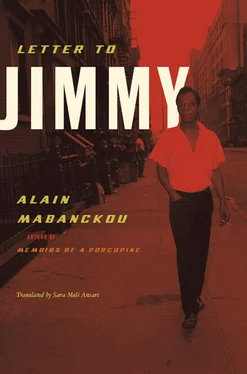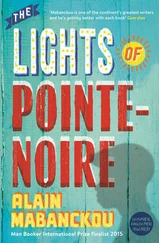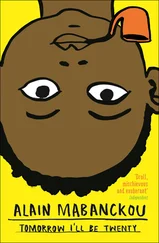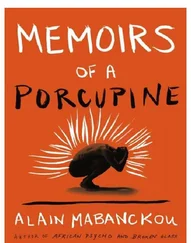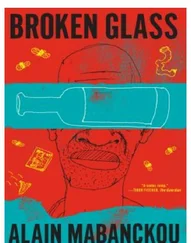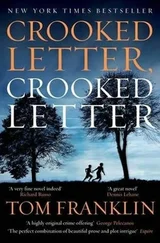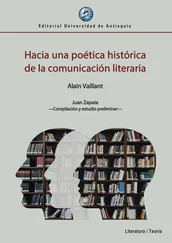It is in this sense that the philosopher Achille Mbembe reproaches France for its lack of the kind of hospitality practiced mostly by the United States that has allowed it to “captivate and recycle the world’s elite. Throughout the last quarter of the 20th century, [the United States’] universities and research institutions managed to attract nearly all of the top black intellectuals on the planet.”
But can we applaud the American model of hospitality blindly, Jimmy? The Cameroonian philosopher argues, “Whether we like it or not, things now and moving toward the future are such that the specter of the third world in our culture and collective lifetime will not rise in a quiet way. The presence of this specter forces us to learn to live exposed to one another. And although we have means of limiting this increase in visibility, in the end, it is inevitable. Therefore we must, as quickly as possible, make the specter into a symbol that facilitates understanding.” 135
•••
At the same time, relations between the “dark continent” and France bring to mind a children’s story with, as yet, no moral. Europe and Africa avoid the issue of history — or at least stifle their differing views of it — while quietly muttering their respective reproaches behind each other’s backs. They are like a couple who hides their incompatibility in public, promising to a family court judge, saddled with the same case for centuries, to keep their dirty laundry behind closed doors.
Is there any hope for these spouses? I am not sure, because when they run into each other on the street corner, they hastily gloss over their differences, telling each other they will discuss everything later. But one of them never comes home on time, returning whenever he feels like it, adding to the ever-growing list of infidelities while swearing, on all that is holy, his undying love.
To stick with fairy tales, Jimmy, I would say that once upon a time, a rooster crossed the ocean, ran aground on African shores, did without parental consent to force himself on the dove as her husband, accumulated acts of domestic violence, and all with such an arrogance that he practically declared war on any other animal eyeing his barnyard. This is how, in my country, Congo-Brazzaville, the Gallic rooster and the Belgian lion would have killed each other over a patch of land had it not been for the intervention of the German mediator who made them sit down at a table in Berlin to work out a way to share.
The marriage between the rooster and the dove lasted for decades. The 1960s were the divorce years, sometimes through mutual consent, but more often than not through the wife’s bitter fight for liberation; the losses were incalculable and would deplete the inheritance of the children born of this union. The rooster decided the settlement. He would leave, but his spouse would be nothing more than a dependent at the mercy of his charity. The rooster could return to the marital home whenever he pleased, and behave like the master of the house. Moreover, he reserved the right to choose a new husband for his ex-wife. At best, this new husband would have attended French schools and universities; at worst, he would be nothing more than an old house servant, a Senegalese Tirailleur, or a frustrated military man, but who got along well with the rooster, to whom he vowed to keep careful watch over his former home.
With time, the new husband would become temperamental, would build castles for himself, proclaim himself “General in his Labyrinth,” president for life — or even in death — with a cane and traditional uniform. And we are the children of this divorce who must be understood.
You would have spoken today in particular to the former colonies of black, French-speaking Africa, Jimmy. These are undoubtedly the only ones since the “The Suns of Independence,” since the refrain from Grand Kallé’s song, “Indépendence Cha Cha,” who remain on the platforms, deceived, and cheated, watching the phantom trains passing, bemoaning the cursed Ham. How will they not yield to the lure of the “competition for victimhood?”
I am sure that it would be to them that you would address your words, though not to scold them, but to look them in the eyes.
You would tell them that the attitude of the eternal victim could not for much longer absolve them of their inaction, their equivocation.
You would tell them that their current condition stems, directly or indirectly, from their own illusions, confusion, and their one-sided reading of history.
There is nothing worse than the person who plays the role he is expected to play, aiding even the most mediocre of directors to exploit his own despair. The world is now full of this type of artist short on ideas, and it has been a long while since the plight of the Negro inspired anyone’s altruism. His salvation is to be found neither in commiseration nor in aid. If that were all that was required, the wretched of the earth would have changed the course of history.
For me to say “Negro” is no longer enough to evoke in the mind of the other the memory of centuries-long humiliation endured by my people.
It is no longer enough, Jimmy, for me to say I am from the South to get assistance from the North in their third-world effort, because I know that aid is nothing more than a veiled prolonging of enslavement, and to be black no longer means anything, starting with people of color themselves. Moreover, Frantz Fanon finishes Black Skin, White Masks in terms that should inspire us in our understanding of our own condition: “I do not want to fall victim to the black world’s ruse. My life does not have to be a summary of negro values. [. .] I am not a prisoner of history. I do not have search through it to give meaning to my destiny. . In the world into which I direct my own step, I create myself endlessly.” 136
Instead of seeking out the definition of one’s status, one is better served by interpreting and untangling the meaning of words, what they convey, what they imply, for the destiny of the person of color. In the end, definitions imprison us, take away from us the ability to create ourselves endlessly, to imagine a different world. As long as these definitions appear absolute, the question of the other remains acute. It is in this vein that I understand your warning: “And, in fact, the truth about the black man, as a historical entity and as a human being, has been hidden from him, deliberately and cruelly; the power of the white world is threatened whenever a black man refuses to accept the white world’s definitions.” 137
•••
In 2004 Albert Memmi published Portrait du décolonisé arabo-musulman et de quelques autres , in which he tasked himself with assessing the condition of the formerly colonized, a half century after the “Suns of Independence.” This work shows us to what extent the offspring of immigrants, having lost their cultural bearings, invent themselves by espousing other forms of culture that are now the subject of many studies. The children of immigrants live in a sort of social exclusion that ultimately drives them to delinquency, as Memmi highlights. Disoriented, they turn to the culture of your native country — I should say: to black American culture — that some consider to be a subculture, with all the negative associations that come along with that: “Having refused to identify with his parents, believing himself to be rejected by the majority, nothing remains for the son of the immigrant but to exist on his own. He must therefore seek a model to emulate outside of mainstream society, and outside of its borders [. .] Naturally he will not look to foreign conservatives, with whom he would experience the same type of rejection. Rather, he gravitates toward the opposition and the marginalized, to what one refers to as the ‘subculture,’ preferably American, and principally black culture.” 138
Читать дальше
